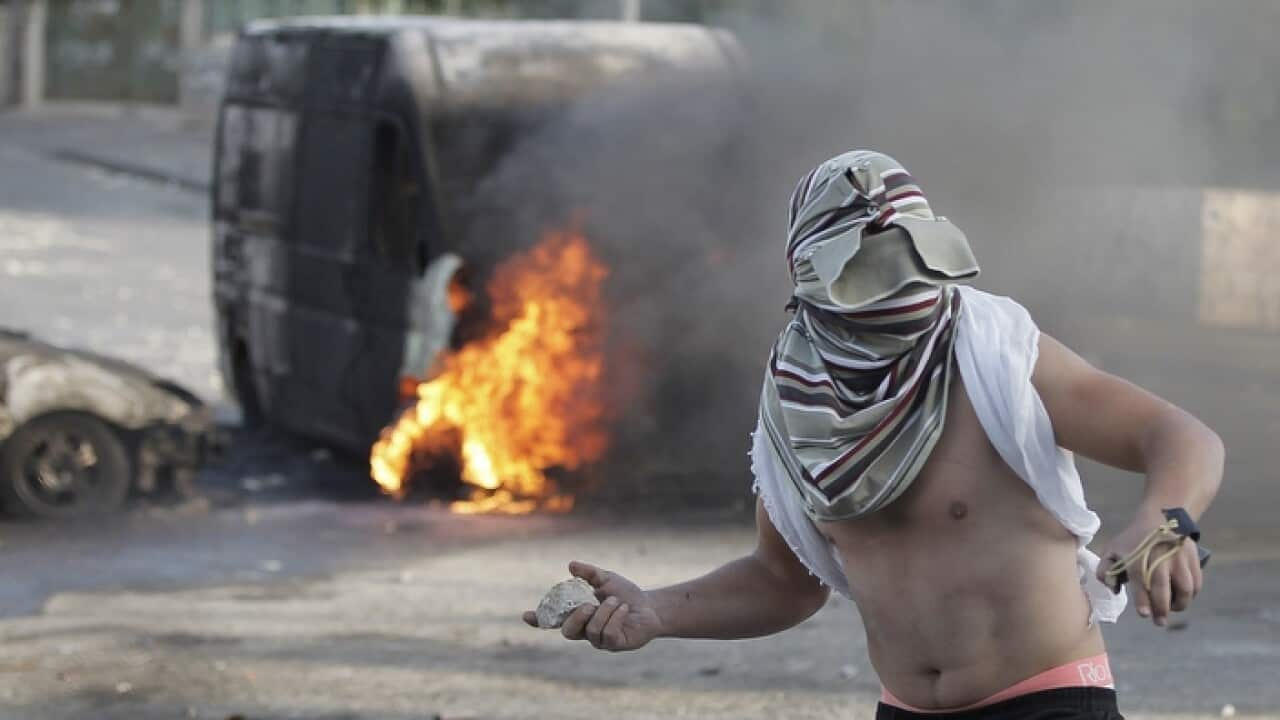Israel has decided to reopen the Al-Aqsa mosque compound after closing it in a move Palestinian president Mahmoud Abbas condemned as a declaration of war.
However, restrictions remain in place, preventing young men from attending Friday prayers amid fears of further unrest.
There have been violent protests in Jerusalem in the aftermath of the shooting of Jewish activist Yehuda Glick.
There were riots in the streets of Jerusalem after Israel announced it was closing the al-Aqsa mosque compound to visitors for the first time in 14 years.
The compound, known as Haram al-Sharif and the Temple Mount, is a holy site for both Muslims and Jews.
Tensions flared after United States-born Jewish activist Yehuda Glick was shot in the chest and stomach on Wednesday.
Mr Glick, who survived the attack, had been campaigning for Jewish access to the sacred site.
Israeli police then killed a Palestinian man suspected of shooting him.
Announcing the closure of the compound shortly afterward, Israeli police spokesman Micky Rosenfeld said it was for security reasons.
"Israeli police have heightened security in and around Jerusalem, with focus on the Old City. And throughout today and tomorrow, the Temple Mount has been closed for visitors, Jews as well as Muslims, as part of the security preparations and measures."
A spokesman for Palestinian president Mahmoud Abbas, Nabil Abu Rudeineh, strongly condemned the move.
"We condemn and refuse the Israeli escalation in Jerusalem over the holy shrines. We will take all legal measures to hold Israel accountable and to stop these repeated attacks, because the continuation of Israeli aggression and dangerous escalation will cause more violence. The Israeli government is responsible."
The Palestinian president went one step further, describing the closure of the holy site as a declaration of war.
Access to the al-Asqa mosque is a deeply sensitive issue.
Israel routinely restricts entry for young men, citing fears of violence.
And many Jewish Israelis have also been arguing their case for the right to pray there.
One member of Binyamin Netanyahu's party, Moshe Feiglin, is pushing for greater Jewish access to the site.
"As a response to the Muslim and Arab violence, we see that Jews are out of the mountain and the Arabs are inside the mountain. Of course, governing as they wish is exactly the reason why we see more and more bloodshed, because the Muslims understand that they get a prize for the attempt to kill Jews."
Prime Minister Netanyahu insists he is not trying to change the status quo to allow more Jewish access to the site.
In other developments, the United Nations Human Rights Committee has urged Israel to investigate potential Gaza war crimes.
It also called for an end to Jewish settlements in the West Bank, East Jerusalem and the Golan Heights.
Israel has long accused the United Nations of having an anti-Israeli bias.
Meanwhile, Sweden has become the first major Western European country to officially recognise Palestine as a state.
Swedish Foreign Minister Margaret Wallstrom explained the decision.
"We have decided to do so on the basis of the fact that the criteria of international law are fulfilled: There is a territory, a people and a government."
Mahmoud Abbas has hailed that decision as brave and historic.
But Israel's Foreign Minister Avigdor Lieberman has condemned it, saying relations in the Middle East are more complex than the self-assemble furniture of IKEA.
Israel has recalled its ambassador from Sweden for what it called "consultations".
Share

